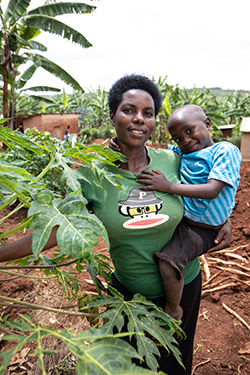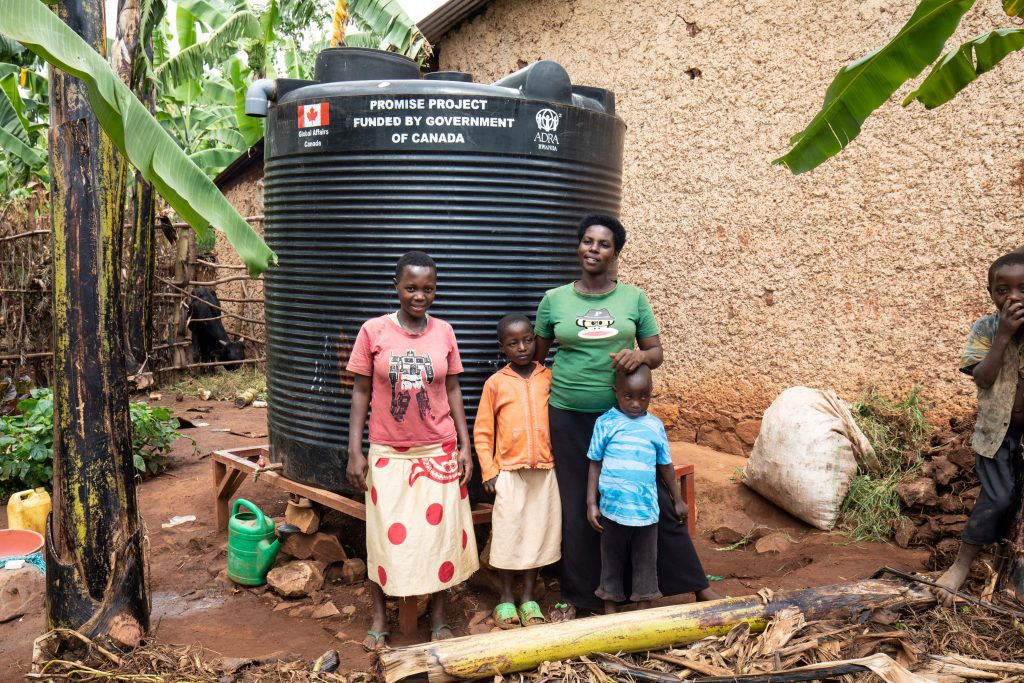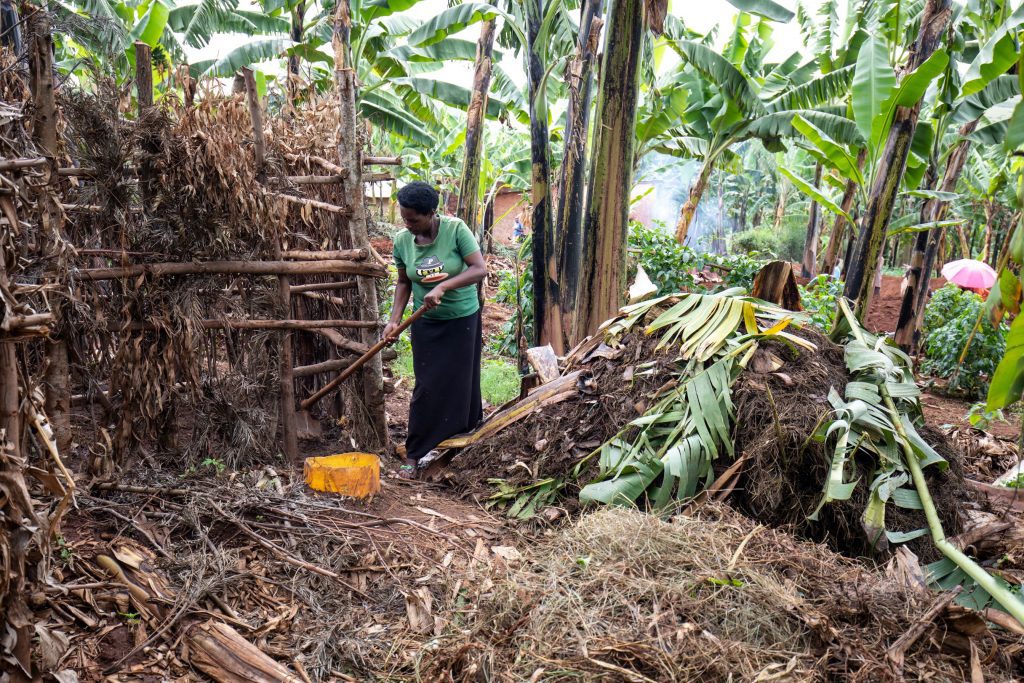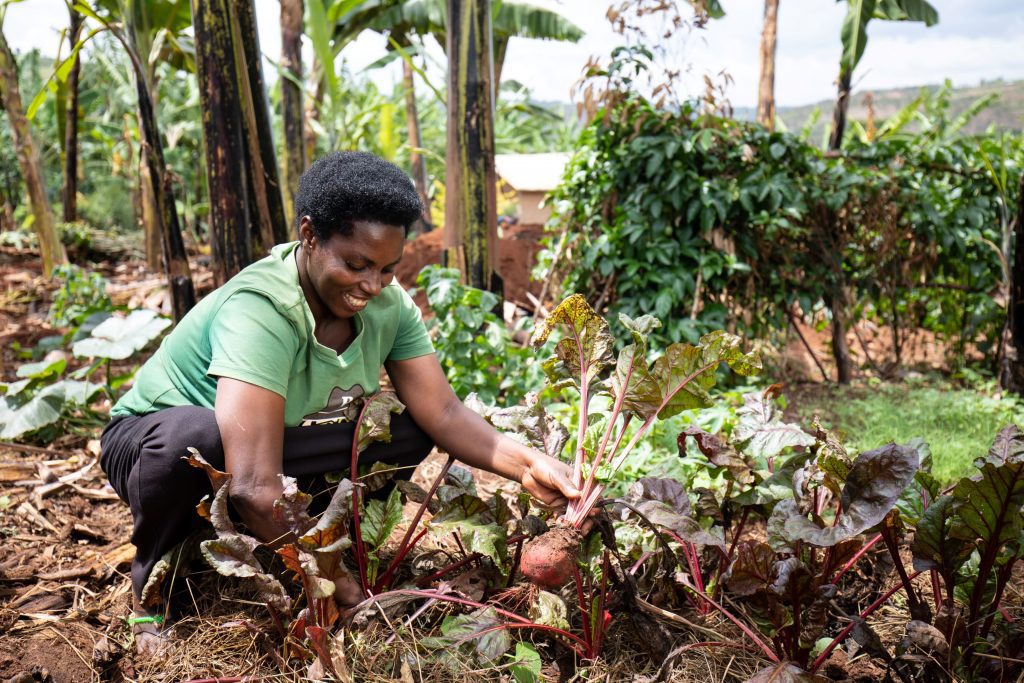
Ruth and her husband lived in a small town in the Eastern province of Rwanda. Together they had five children and were doing quite well.
Unexpectedly, Ruth’s husband passed away. She tried to carry on but found it too overwhelming.
Ruth and the children moved back to the rural village where her husband grew up and where they still had a small family farm.
She soon found out that it was difficult to grow enough food to feed her family. The ground was hard and without a lot of chemical fertilizers, was quite unproductive. Located in the driest region of Rwanda, her farm only got enough rain for growing crops about three months of the year.
Ruth was about to despair when she heard about a training program that ADRA was conducting in her village. She was told that the training would teach people how to grow new food crops, even during the dry season. Her children were hungry and she was very interested to learn what she could do to grow more food for her family. Here is the story, as Ruth tells it.
“Before the ADRA training, I did not know how to grow vegetables. Hardly anyone around here did. When ADRA told us that vegetables were important for good health I was very surprised! We all believed, ‘only very poor families eat vegetables’. ADRA taught us new methods on how to grow vegetables in dry climates, gave us seeds, provided garden tools and showed us how to make our own organic fertilizer by composting. I was still a little skeptical about vegetables but since my baby had recently been found to be malnourished at the government health clinic, I decided to give them a try and see what kind of effect it will have on my child. I was amazed at the results! My child responded very well and quickly became a healthy baby!
As one of the widows in the group, I was selected to receive a water tank from ADRA. The water storage tank allows me to save rainwater that falls on the roof of my house during the rainy season and use it to irrigate my kitchen garden long after the rains have stopped.
I was also selected to receive a goat from the ADRA project. That goat has already produced four baby goats and now all of them are pregnant! All these goats having goats will help with my overall income. It provides me with a sense of security knowing I have the goats. Whenever I have an emergency, or I need something, I can sell a goat for the cash. The goats also help provide manure to help me make good organic fertilizer for my kitchen garden.
The ADRA project has given us all fruit trees. I received avocado, mango, passionfruit and tree tomatoes. I am going to be growing a lot of these trees on our half hectare farm. This should bring a lot of good income in the future.
My organic vegetable garden has done very well! I was soon growing more than my family could eat. I started selling some of my extra produce.
I used the profits I made to buy another goat. After the goat had produced some offspring, I was able to sell the kids and use the money to buy a male calf. Male cows are cheaper than female cows, but they still provide good manure. In about six months I will sell it along with a few goats and buy a female cow so that I will be able to have manure and milk! From that one cow I will raise up a herd!
I am slowly rising up! After my husband died, I tried to carry on some of his money-making projects, but it became too much for me to do on my own and I gave up. The ADRA training has been an inspirational refresher course for me. It has instilled confidence. They have encouraged all of us to start some income generating activities. We have started a small savings and loans program that gives access to capital when we need it and taught us basic business principles. My vision for the future is to become a business woman who grows a lot of vegetables for market and raises animals.
Before ADRA came to help us, my family was in bad condition. Now we are all in good health and we have much better income now. I think that is the uniqueness of ADRA. It has built our capacity and encouraged us to work hard to build a bright future for our families. I want to thank the people of Canada who have sponsored this project.”

A water storage tank fills up from roof runoff during the dry season and helps Ruth irrigate her garden long after the rains stop.

Ruth uses the dung from her goats and cow to add to her compost heap to make organic fertilizer for her kitchen gardens. Her results have been so amazing that her kitchen garden has turned in to a market garden!

A delighted Ruth shows off her beets in her rich kitchen garden growing right by her home.
